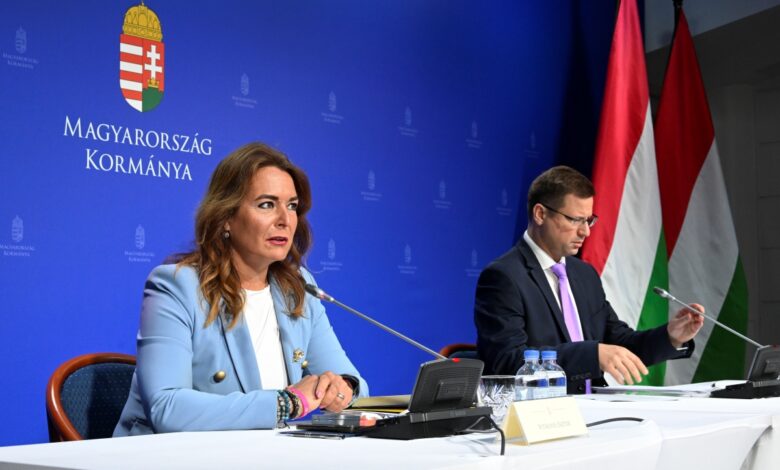Government Press Briefing Addresses Ukraine Conflict, Cybersecurity, and EU Court Rulings

In the first press briefing after the July 9 local and European Parliament (EP) elections, government spokeswoman Eszter Vitályos and Minister of the Prime Minister’s Office, Gergely Gulyás discussed several key topics. They addressed the new Digital Citizenship program, the significance of the EP elections regarding the war in Ukraine and migration policies, recent investments and developments in Hungary, cyber-attacks on government systems, and an EU court ruling on immigration policy.
Digital Citizenship Program
The Hungarian government has launched a new Digital Citizenship program aimed at simplifying administrative processes for citizens. The program allows individuals over 14, possessing an identity document and a smartphone, to pre-register at government offices. Upon pre-registration, they receive data in the form of a readable code on their mobile phones, which can be stored for later activation.
Starting this autumn, citizens will use this digital identity application initially at police checks.
By 2026, it is expected that most government-related tasks can be managed digitally, reducing the need for physical visits to document offices.
European Parliament Elections and War in Ukraine
Gergely Gulyás emphasized the importance of the recent EP elections, highlighting the debate over pro-war forces and migration policies. He criticized the worsening war situation in Ukraine and the calls from European leaders for military intervention, stressing Hungary’s opposition to such measures.
Minister Gulyás reaffirmed Hungary’s stance that any NATO decision involving Ukraine must allow Hungary to opt out, ensuring that Hungarian troops or financial contributions are not required.
The government’s assessment suggests that forced conscription in Ukraine, including in Transcarpathia, exacerbates the conflict.
Recent Investments and Developments in Hungary
Eszter Vitályos highlighted significant investments and developments in Hungary over the past two weeks. Key projects include the Mol Polyol Complex in Tiszaújváros (Eastern-Hungary), supported by a EUR 130M state subsidy, and producing 200,000 tonnes of polyol annually. Additional investments encompass nine kindergartens and day nurseries, road development projects, and several cultural renovations. Notable projects include a sports and leisure center, an interactive animal show in Nyíregyháza Zoo, and the renewal of the former Esterházy Castle. These developments aim to enhance infrastructure and cultural amenities across the country.
Cyber-attacks on Government Systems
The government addressed the 2022 Russian cyber-attack on the Ministry of Foreign Affairs and Trade. Gergely Gulyás assured that no confidential data was compromised, countering media allegations of serious IT system breaches.
He emphasized that cyber-attacks on government systems are common, originating from various countries.
The government remains vigilant in protecting sensitive information, and there have been no diplomatic repercussions from this particular incident. Mr. Gulyás reiterated that the security of Hungary’s digital infrastructure is a priority, with continuous efforts to fortify against cyber threats.
EU Court Ruling and Fines on Immigration Policy
Gulyás criticized the EU Court of Justice’s ruling that fined Hungary EUR 200M for breaching EU immigration policy. He described the ruling as outrageous, unjust, and incompatible with both EU law and the Hungarian constitution.
The court’s decision, which significantly exceeded the European Commission’s initial fine request, was seen as a punitive measure against Hungary’s strict border protection policies.
Minister Gulyás argued that Hungary’s actions have consistently aimed to protect its own and Europe’s external borders, highlighting the need for MEPs who support robust border security and oppose unrestricted migration.
Via MTI; Featured Image: MTI / Koszticsák Szilárd






